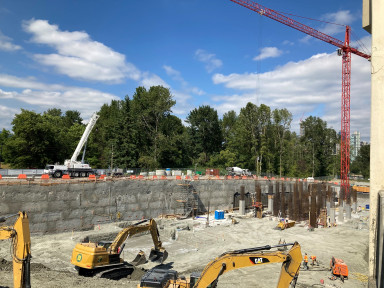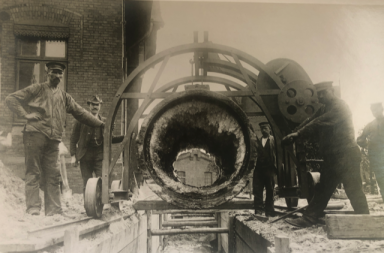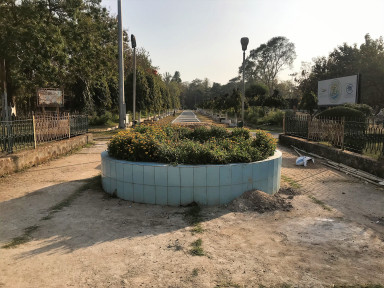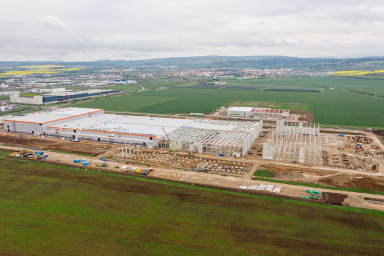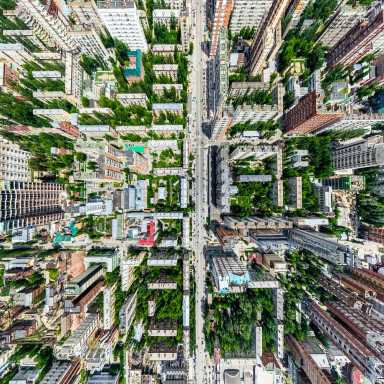The green, affordable, reconciliatory city
The socioecological fix of Indigenous real-estate developments in Vancouver
This thesis is concerned with understanding the ways in which geographical imaginations of the green city of the future intersect with those concerning Indigenous reconciliation within the frame of Vancouver real-estate capitalism. Drawing on literatures around urban political ecology (UPE) and settler-colonial studies, and employing the lens of the socioecological fix, the thesis aims at conceptualizing how cultural elements such as geographical imaginations influence the formation of urban space. This is done by engaging with different planned or initiated Indigenous-led real-estate developments in Vancouver, Canada.
- geographical imaginations
- green cities
- Indigenous reconciliation
- settler capitalism
- urban political ecology
Context
Efforts to build the green city are underway across the globe. Cities are assumed to become green by using nature for the creation of sustainable investments. In Vancouver, a number of planned or initiated Indigenous-led developments across the city depict their potential not only in making the city green and life therein sustainable, but also in being a means for Indigenous reconciliation. The city’s First Nations are deciding on the form and substance of all the developments observed in this study, which are also projected to yield significant financial returns. In a globally exceptional case, visions about the future of the city fuse green real-estate development with successful reconciliation. Therefore, there exists a need to explore how space can simultaneously be understood as Indigenous space and a productive part of green capitalism.
Aims
The thesis aims to better understand the creation of urban space by specifically investigating the intersections between green urbanism, financialization of urban space, and approaches to Indigenous reconciliation, thereby drawing from literatures around urban political ecology (UPE), climate finance, and settler-colonial studies. It aims at a better understanding of Indigenous-led real-estate developments implemented in Vancouver and how these are not only conceptualized as creating green and sustainable modes of living while generating financial returns, but also understood as successful approaches to reconciliation. By engaging with geographical imaginations of these projects, this thesis investigates the proclaimed green transformation1 in Vancouver in the context of continuing coloniality towards Indigenous peoples.2 This yields the following research question: How are geographical imaginations of the green city, its political economy, and Indigenous reconciliation imagined within the conceptualization of Indigenous-led urban development projects in Vancouver, and how do such cultural elements socioecologically fix urban space? The thesis provides a theoretical analysis of how geographical imaginations of the green city, the functioning of the political economy of green city developments, and Indigenous reconciliation are conveyed by analysing them in a discursive fashion. Thereby, the thesis strives to present cultural approaches and focuses on imaginaries as a viable extension of UPE research.3 It conceptualizes geographical imaginations as influencing the way in which urban space is co-produced through cultural and material elements by employing the lens of the socioecological fix.4 Through this, the thesis aims to better understand how cultural elements socioecologically fix meaning, and it therefore engages with theoretical approaches at the interface between culture and materiality.
Research design
Three different case studies within the city of Vancouver are presented. Each project envisions or has started the development of large tracts of land, arguably building green and sustainable forms of living while also being highly lucrative properties on Vancouver’s housing market. While all these developments are led by First Nations, they are carried out in different constellations between First Nations, private developers, the municipality, and the federal government. Sen̓áḵw, a development that has just started construction, is an undertaking of the Squamish First Nation in collaboration with the private developer Westbank on reserve land under federal jurisdiction. The municipality is involved through a service agreement with the development. In contrast, the Heather Lands and Jericho Lands developments are a project of MST Development, a coalition of the Musqueam, Squamish, and Tsleil-Waututh First Nations, together with the Canada Lands Company, a federal corporation. The land, part of which is jointly owned by these two entities, is within the jurisdiction of the municipality of Vancouver. Methodologically, the thesis envisions two different approaches. In a first step, available documentary evidence such as strategies, reports, and project plans are analysed regarding their geographical imaginations through the application of a discourse analysis. Then, interviews using go-along, or photo-elicitation techniques are employed. These interview approaches are deemed as an adequate means to better conceptualize imaginaries and representations, as well as to better understand how these are translated into materiality.
Supervisors:
- Jr. Prof. Dr. Franziska Müller
- Prof. Dr. Hanna Hilbrandt
